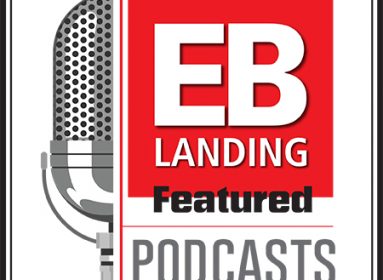
(podcast)
Hi everyone; it’s Kevin. It’s Thursday evening, October 15th. As you know, COVID-19 positivity rates in our communities have been rising since the end of summer, and in turn, so have our employee case rates. As of today, the positivity rate in Connecticut is 2.0% and the rate in Rhode Island is similar at about 1.9% — a significant increase from rates in previous months. Here at Electric Boat, since October 1st, we’ve jumped from 124 cases to 166 cases through the close of business today.
That’s a significant increase. But I’d like to put some context around the numbers. We have seen 42 positive cases month-to-date in October. Eleven of those cases are people who have been working from home, so they’re not in the workplace, they are at their place of residence, and we caught one case as part of a pre-employment screening. Nine of the 42 cases are part of the cluster in Department 242 in Groton that I talked about last week including the actions we had taken to address that and make sure that we tamp down on the spread of that particular cluster. The remaining cases are dispersed throughout our facilities—there are no other clusters. Our positivity rates continue to be significantly lower than our surrounding communities.
On Friday’s podcast, I asked that everyone be vigilant in wearing a mask, practicing social distancing washing/disinfecting their hands frequently, and don’t come to work if you feel sick. I’ve heard from a few of you why people might not be complying particularly with not coming to work if you’re sick. Some people think they might just be experiencing allergies or the start of a cold. Other employees have said they feel like they must come to work when they’re sick because they don’t have other options with regard to paid time off. Today with me I have Andrew Bond, our Vice President of Human Resources. The bottom line is, if you feel sick, you have options if you’ve exhausted your benefit time, and that’s true across all of our work groups. So we want to talk about that today. Andrew—welcome back to the broadcast.
Thanks Kevin. To begin, I’d like to remind folks that all of the details of our work policies in effect during COVID are included in EB’s COVID-19 Wellness, Pay and Benefits Guide. It’s located on Homeport.
There are three areas that our COVID policy covers: first, job protection for EB employees who must miss work due to an issue related to COVID; second, flexible work schedule arrangements; and third, teleworking.
We have enhanced short-term disability benefits available to employees unable to work due to medically documented COVID-19 symptoms. The details are included in the guide—I encourage employees to review the information included for their particular work group.
If you are in the situation where you have exhausted your benefit time, and you are not eligible for Short Term Disability or other disability leave, the first step is to speak to your supervisor or designated administrative representative to understand your options.
What are the leave options for our different employee groups? I want to stress that the first step in all of these situations is to speak with your supervisor or your HR Rep. We want to work with everybody to make sure that we have a positive outcome.
The first layer of benefits would be that all employee groups have the ability to tap into their vacation time, sick time, personal time or paid time off depending on their work group. Salaried employees, Quonset Point hourly and MDA members can work with their management to flex their work week. Salaried and MDA employees also have the option of working from home in many cases, with their supervisor’s approval. Salaried employees are still allowed to go up to negative 40 hours in their PTO bank. And they can also apply for a PTO donation.
I would like to stress that all employees have the ability to request a personal leave for up to 30 days after they’ve exhausted their benefit time. So there’s an array of options available to everyone.
The key point here is that we’re willing to work with you to find a solution. You have my personal commitment—no one is going to lose their job because of COVID. Andrew has sent a copy of the COVID-19 Wellness, Pay and Benefits Guide to all of the EB supervisors so they have the detailed information they need as we continue to move forward with COVID. We’re here to help in any way we can to make sure that information gets disseminated.
I’d like to make another important point as well. Our Medical Directors regularly review the CDC and other public health guidance to ensure that our processes and protocols meet or exceed their recommendations. We’re fortunate to have the Rapid Response Team that provides real-time reporting to the senior staff about new cases, along with a weekly status review, and they’ve performed extensive contact tracing to inform testing that can help keep all of us safe. Currently we have about 6,000 test kits on hand, so we’re very well equipped to test as needed. We’re lucky to have such a talented and dedicated team of professionals on staff.
We’re regularly in touch with Doc Andrews and Doc Hurley to make sure that we are in compliance in every respect. I very much value having them on staff. I want to reinforce what our governors are talking about. Governors Raimondo and Lamont have both been emphasizing in their recent press conferences that the spike in cases we’re seeing is not coming from strangers infecting other strangers. What we’re learning is how to live with COVID in controlled situations like schools, restaurants and stores. It seems that the overwhelming majority of cases are now coming through small group gatherings. And in our own case here in Groton, we had a situation where we had a couple of EB people who were friends outside of work, and ended up catching the virus from each other in that regard. So those gatherings of people who know each other are a reason for why this disease is spreading. Because we know people well, and we’re comfortable with them—our extended families, neighbors, and friends—we might feel like it’s OK to let down our guard and our masks.
We’ve been pretty successful in keeping our workplace as free of the virus as we can. I think that was easier when our governors had restrictions in place. I’m not an advocate that we should shut down society like we did back in March and April; that’s no way to live. But now that those restrictions have loosened, we each personally have to be more vigilant. I know in my own case, my wife and I have decided we’re not going to eat out, at least not until things calm down, and we’re going to keep to our house for the most part to make sure that we’re not risking it.
Here at EB we need to continue to remind you to stay away from work if you feel sick, wear your mask, and do so properly—I see a lot of noses hanging out when I walk through the shipyard and Quonset Point facilities—continue to wash your hands frequently and observe proper social distancing. Outside of work, please make smart choices—think about the consequences of your actions on others, primarily your friends and your fellow workers. Please folks; we’ve made it this far. We need to return to the vigilance we had in the spring and summer, at least until this thing blows over for good.
Andrew; thanks for the information today. Thanks everyone; we’ll talk soon.




Comments are closed.